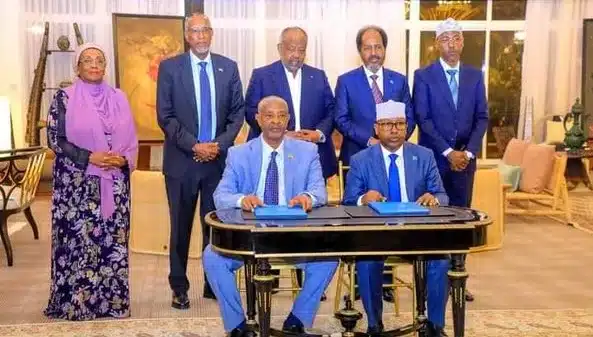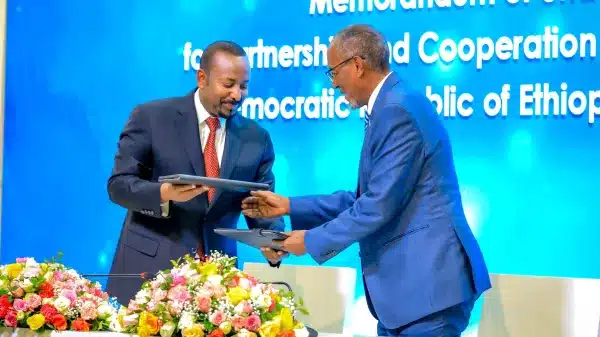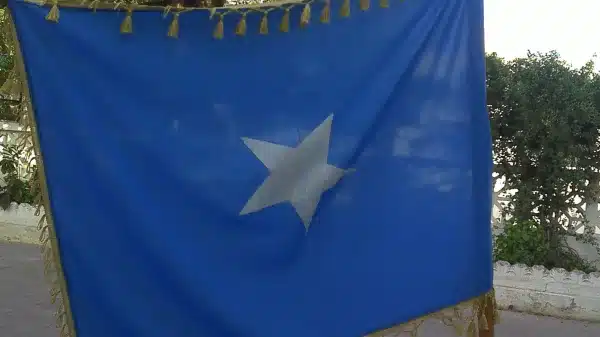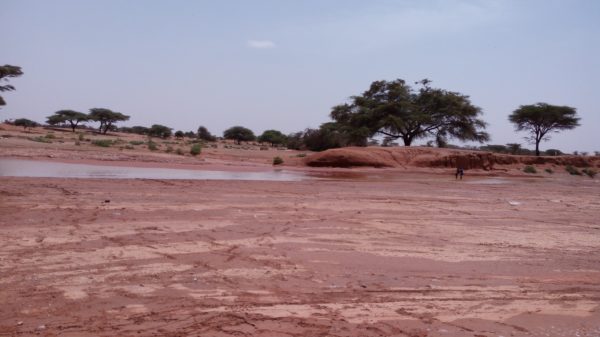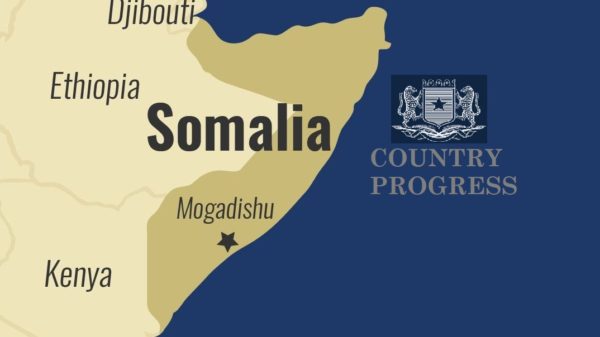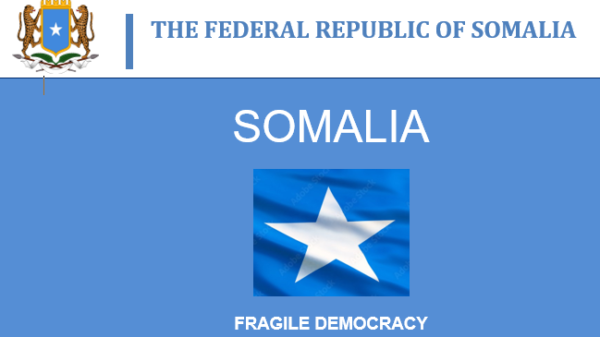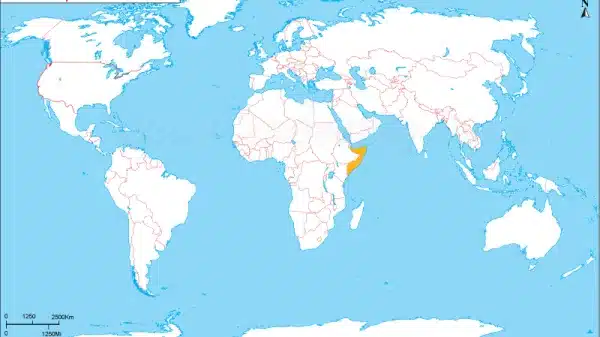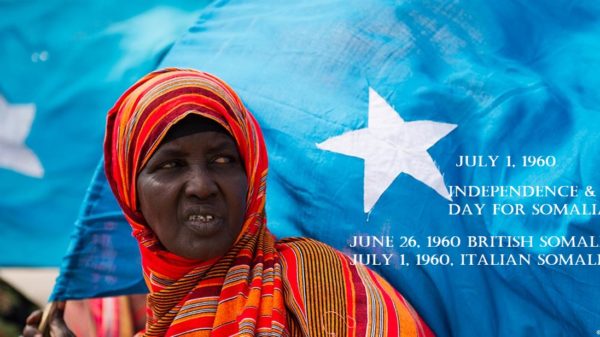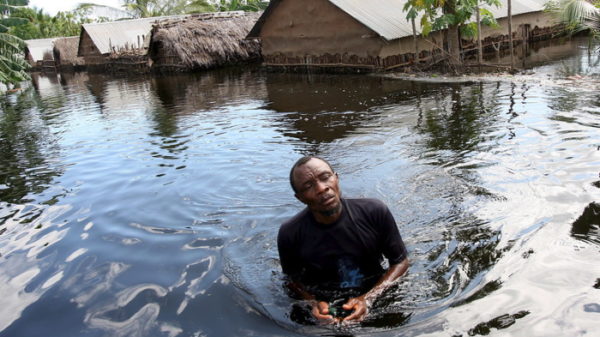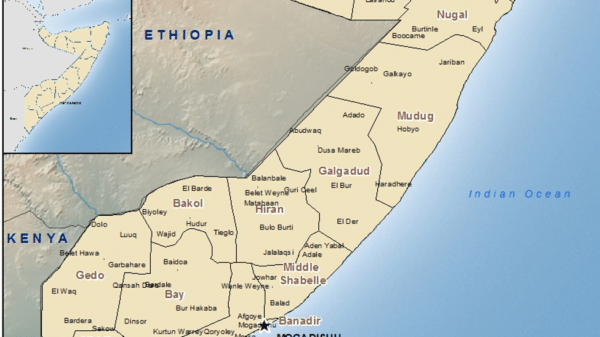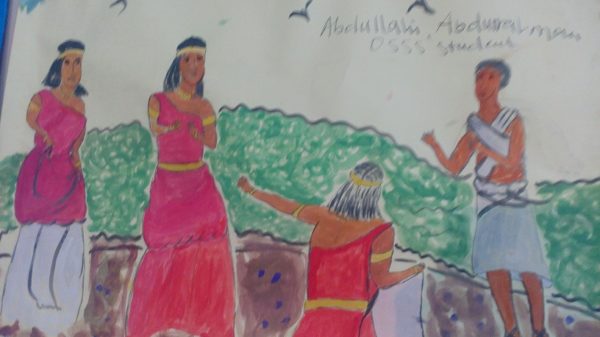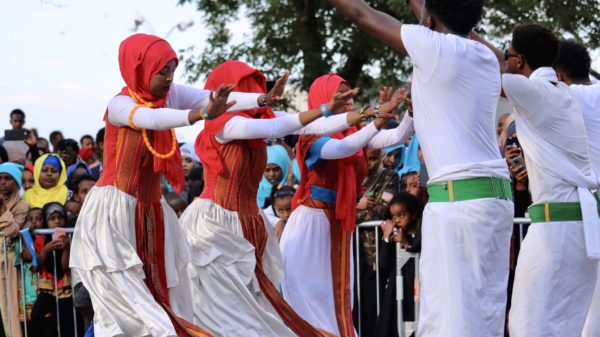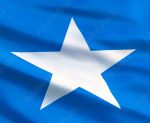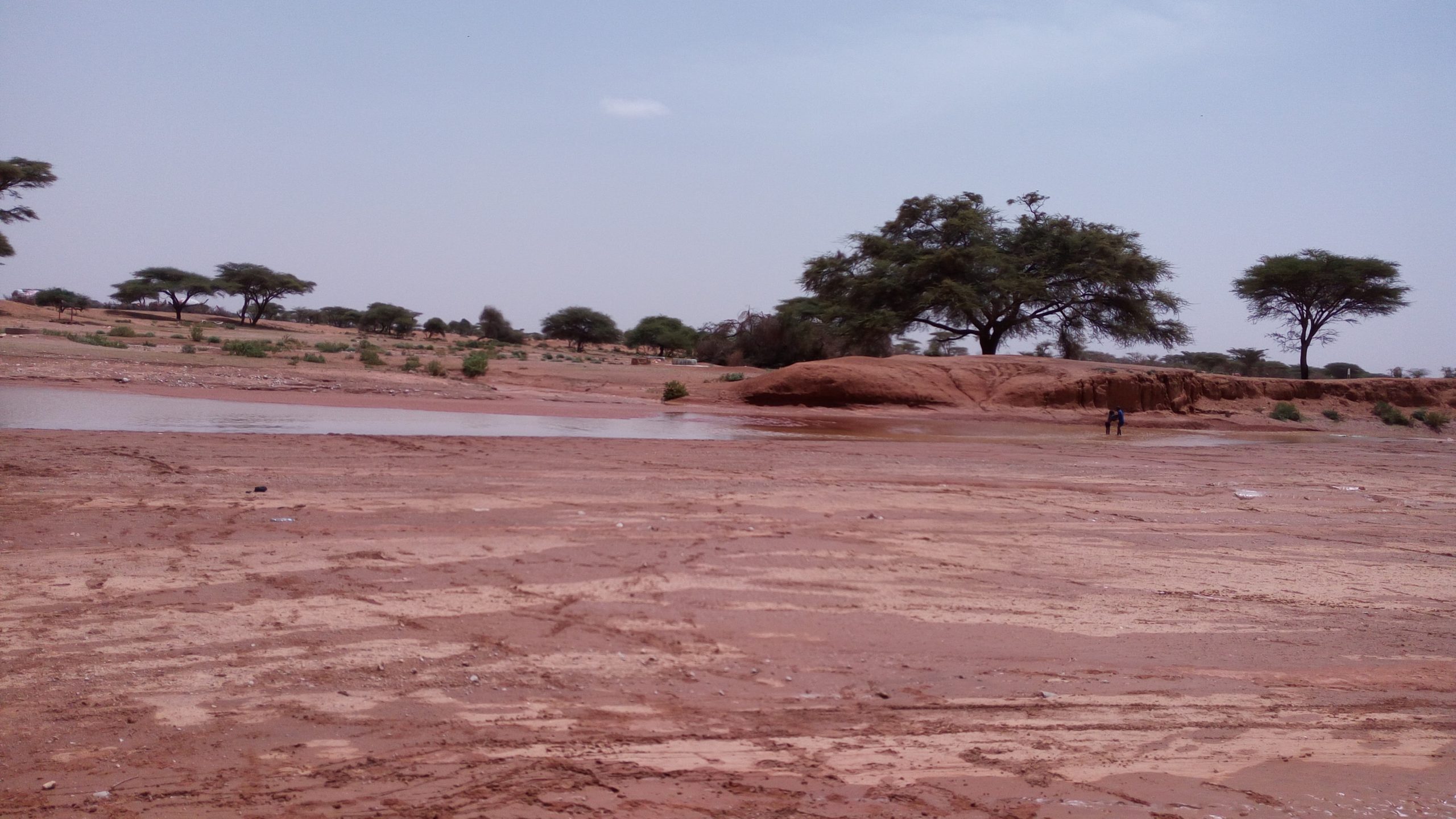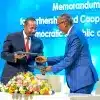Essential Insights into Somalia and Its People: A Comprehensive Guide
Somalia and its dynamic population hold a rich history, leaving indelible imprints on both their land and culture. Embarking on a journey to explore Somalia and its vibrant populace, we unravel a resilient history that has left an indelible mark on both the land and culture. Join us as we delve into the crux of Somalia and its people, uncovering a rich tapestry of traditions, resilience, and collective spirit. From the melodic beauty of the Somali language to the unwavering warmth of their hospitality, prepare for an enthralling exploration of this extraordinary nation and its inhabitants.
To gain a comprehensive understanding of this fascinating nation and its people, it is important to explore ten vital aspects that define Somalia and its inhabitants. Discovering their deep-rooted traditions, resilience, and communal harmony will unveil the true essence of this extraordinary country.
Nestled in the Horn of Africa, Somalia stands as a nation defined by captivating landscapes and a people celebrated for their formidable cultural heritage. Immerse yourself in the essence of this remarkable country by delving into the intricacies that encapsulate Somalia and its people. Unravel their age-old customs, unyielding strength, social fabric, and unwavering sense of community.
Before exploring deeper, it is imperative to establish a foundation of accurate facts regarding Somalia and its ethnic community. Firstly, it is crucial to reference Somalia and its people by their correct name, a detail that has often been overlooked even by reputable online dictionaries. Secondly, it is vital to recognize that Somalis belong to the illustrious Cushite family of Africa, dispelling common misconceptions that label them as ‘Arab’ or ‘Middle Eastern’. Numerous contemporary writers have debunked these outdated notions, providing scholarly evidence that challenges longstanding conventional wisdom.
1. Many writers and scholars have long entertained the old conventional wisdom, but there are modern-day writers challenging it without academic support. These writers assert that when referring to Somalia and its ethnic people, it is vital to know that they overwhelmingly prefer the demonym Somali instead of the incorrect Somalian. They argue that Somali is an endonym, while Somalian is an exonym with double suffixes. From a geopolitical sense, the hypernym of Somali is Horner, and from an ethnic sense, it is Cushite (Michel, A. D. A. M. “Panorama of Socio-Religious Communities1.” Indian Africa: Minorities of Indian-Pakistani Origin in Eastern Africa (2015): 69).
2. The term Somali is used to denote something originating or relating to Somalia, the majority ethnic group, and the language. It is imperative not to use the term Somalian to describe the country or its people, as it is an inaccurate demonym invented by the West. According to Nina Evason in the article “Somali Culture” from Cultural Atlas (2019), it is important to clarify that Somalis are not Arab or Middle Eastern. Although they practice similar Islamic customs and traditions as other majority Muslim countries, their location is not in the Middle East, and they are ethnically Somali, not Arab.
3. Somalis belong to the Cushite family and historically referred to their ancestral homeland as the highlands of southern Abyssinia, which is present-day Ethiopia. Around the first half of the first millennium BC, they split from the group and expanded to the Somali Peninsula, which encompasses the entire Horn of Africa (Somalia and Djibouti), eastern Ethiopia, and northern Kenya. Despite the belief that the majority of Somalis originate from the Arabian Peninsula and migrated following a north-to-south route, recent findings suggest that the truth is the reverse. According to Ahmed Adan in “Somali Identity within the Cushite Family” from Ogaal Star (2023).
Correct Identification of Name
The country in question is officially called Somalia, with the formal designation being The Federal Republic of Somalia. Another commonly used term is The Somali Federal Republic, which was previously known as The Somali Democratic Republic. Historically, it had the name The Somali Peninsula and geographically, it is referred to as The Horn of Africa. When referring to Somalia and its residents, it is important to use the appropriate forms of nouns, verbs, and adjectives, as well as their respective singular and plural forms. Below, you will find the appropriate noun, verb, and adjective forms, as well as their corresponding singular and plural variations, when discussing Somalia and its citizens:
Ten Things You Need to Know About Somalia and Its People
Unveiling the Enigma: Ten Crucial Facts about Somalia and Its Citizens
Somalia is a country in the Horn of Africa that is rich in cultural heritage and inhabited by a resilient people. To fully grasp the essence of this remarkable nation, it is crucial to delve into the key aspects that define Somalia and its people. From their diverse traditions and societal frameworks to their strong community bonds and entrepreneurial spirit, exploring these ten insights will provide a deeper understanding of Somali society.
- Cultural Diversity
- The Somali Clan System
- Somali Oral Traditions
- Resilience and Hospitality
- The Significance of Islam in Somali Society
- The Somali Nomadic Traditions
- The Somali Entrepreneurial Spirit
- The Importance of Education
- Strong Community Bonds
- The Somali Diaspora
1. Cultural Diversity
The nation is home to various ethnic groups, each with its own customs, languages, and traditions. The dominant Somali ethnic group forms the majority of the population and has a distinct cultural identity. They are traditionally pastoralists, relying on livestock for their livelihood. The Somali people take pride in their language, Somali, and have a rich oral tradition of poetry, storytelling, and music. In addition to the Somali ethnic group, there are minority communities that contribute to the cultural diversity of Somalia. The Somali Bantu community, historically engaged in farming and fishing, has their own cultural practices and speak a variety of languages including Swahili. They have added to the cultural richness of Somalia through their unique music, dance, and cuisine.
The Somali Benadiri community is another minority group that is primarily concentrated in the coastal areas of Somalia. They share the Somali culture and language but also have influences from Arabic, Swahili, and Somali. The Benadiri people have played a role in trade and have contributed to the cosmopolitan nature of Somali cities. Arab-descended populations, known as the Reer Hamar, also exist in Somalia. With their Arab roots, they have had a significant influence in the trade and merchant communities of the country. Their customs, dialects, and cultural practices add to the diverse fabric of Somali society.
The cultural diversity in Somalia is evident in various aspects of life, including music, dance, clothing, cuisine, and religious practices. Somali music, with its distinct styles such as traditional folk music, Islamic religious chants, and modern pop music, reflects the diversity of the country. Traditional dances like Dhaanto and Buraanbur are unique to each ethnic group and showcase the varied cultural expressions within Somalia. Clothing in Somalia also reflects the cultural diversity, with each ethnic group having its own traditional attire. The Macawiis, a wraparound cloth for men, and the Dirac, a dress for women, are commonly worn, but variations exist within different ethnic groups.
Overall, the cultural diversity in Somalia is a vital part of the country’s identity and heritage. It contributes to the richness and vibrancy of the nation, showcasing the various customs, languages, and traditions that coexist within its borders. Through its ethnic diversity, Somalia embraces its multicultural heritage, fostering an inclusive and diverse society.
2. The Somali Clan System: An Ingrained Social Hierarchy with Cultural Significance
With deep cultural significance, the Somali Clan System is an ingrained social hierarchy that has shaped the Somali society for centuries. Its historical norms and traditions have defined social status, resolved conflicts, and fostered a strong sense of identity and belonging among the Somali people. Within this system, there exists a construction of social classes, wherein different occupational groups hold distinct roles and statuses. Notably, the camel herders occupy the highest position of prestige. This essay aims to explore the origins and operation of the Somali clan system, providing insight into its historical context and its enduring presence in contemporary Somali society. Comprising of five major clans, namely Darood, Dir, Hawiye, Digil, and Mirifle, as well as the Fifth Clan or other minority groups, the Somali clan system remains integral to Somali culture and society.
The Somali people, renowned for their resilient spirit and rich cultural heritage, possess a unique social structure deeply rooted in the clan system. This intricate network of clans pervades all aspects of Somali society, from political and economic realms to marriage customs and social interactions. Revered for its ability to define individual social standing, resolve conflicts, and shape the very fabric of Somali society, the clans evoke a profound sense of identity and belonging. To comprehend the nuances of Somali culture and the intricacies of its people’s interrelationships, it is essential to grasp the complexities of this clan system. By embarking on this exploratory journey, we uncover the origins, characteristics, and significance of the Somali clan system, illuminating a fundamental aspect of Somali society that has stood the test of time.
3. The Somali Oral Traditions
Somali culture places great importance on storytelling and oral traditions. These captivating narratives, poems, and folklore have been instrumental in preserving the wisdom, history, and values of the Somali people across generations.
The cultural evolution of the Somali people unveils the rich legacy of their heritage. To truly comprehend their past and societal progress, it is crucial to explore the various elements that mold their cultural development. This encompasses folklore, customs, language, knowledge, and landscapes, all of which hold significant social value. Somalis are renowned as the “nation of poets”, boasting a strong tradition of oral storytelling that has been passed down through the ages. These tales serve as vehicles to impart teachings and insights into social values, norms, behaviors, and virtues, thus offering invaluable historical and political accounts that span centuries.
Traditional practices such as storytelling, poetry, proverbs, folk dances, and plays continue to hold immense significance in Somali society. These customs serve as the primary means by which Somalis define their identity, document their history, express their deepest emotions, and communicate their perspectives. The Somali language, deeply rooted in its oral traditions, has been passed down from one generation to the next, establishing itself as an integral facet of their cultural heritage. It is estimated that there are over 30 million Somali language speakers worldwide. Though historical records on the language are limited, the formal adoption of the Latin script by the Somali government on October 21, 1972, marked a significant turning point. Subsequently, in 1973 and 1974, successful national-level literacy campaigns were launched, resulting in the highest literacy rate in Somali history, reaching an impressive 85 percent.
4. Resilience and Hospitality
Somalis have faced numerous challenges throughout their history, including civil war, political instability, and droughts. Despite these hardships, they have shown remarkable resilience and a strong sense of community. Hospitality, or “xoolo” in Somali, is a deeply embedded cultural tradition that plays a significant role in Somali society. It is a fundamental value that encompasses welcoming and accommodating guests with warmth and generosity. This tradition is practiced both within individual households and on a broader community level. When a guest arrives at a Somali home, they are greeted with open arms and offered food, drinks, and a place to rest. In Somali culture, it is considered impolite to turn away a visitor, regardless of their relationship to the host. This tradition extends beyond family and friends to strangers and travelers as well.
Somalis take great pride in their ability to provide for their guests, often going to great lengths to ensure their comfort. This includes preparing elaborate meals, offering comfortable sleeping arrangements, and offering company and conversation. It is not uncommon for hosts to go above and beyond to ensure their guests’ needs are met. The tradition of hospitality is not limited to home settings alone. It is also visible in public spaces, such as restaurants and tea shops, where strangers are often welcomed and offered a seat. This inclusive culture promotes a sense of belonging and strengthens social bonds within the community.
The resilience of Somalis is closely tied to their hospitality. Despite enduring decades of conflict and instability, they have managed to maintain their generous and welcoming nature. This trait has helped them rebuild communities, strengthen relationships, and find solace in their shared experiences.
In addition to providing comfort for guests, the tradition of hospitality also serves as a form of social support within Somali society. It creates spaces for dialogue, exchange of ideas, and the sharing of resources. This sense of communal support has been crucial in times of crisis and has helped individuals and communities cope with hardships they have faced.
Somalis take great pride in their ability to endure and overcome challenges, and their tradition of hospitality is a reflection of this resilience. Despite the struggles they have faced, they continue to open their doors to others, offering kindness and generosity to all who come their way.
5. The Significance of Islam in Somali Society
The Somali society places great importance on Islam, as virtually all Somalis are Sunni Muslims. Islamic principles have a pervasive influence on every aspect of life, including family dynamics, social norms, and community interactions. The Islamic faith, particularly the Sunni sect and the Shafi’i school of Islamic jurisprudence, is followed by approximately 99 percent of the Somali population. As the official religion of Somalia, Islam plays a crucial role in shaping the national identity of Somalis, serving as a unifying force that transcends clan affiliations and diverse cultural backgrounds.
Since the early 7th century CE, Islam has been a significant presence in the fabric of Somali society, contributing to its identity formation. The arrival of the Riddah exiles, who originated mainly from Oman, in Banadir in 632 CE marked the beginning of this transformative period. Subsequently, the influence of Islam spread to the hinterlands through the waterways of the Shabelle and Juba rivers, establishing early Islamic centers such as Afgoy, Bali, and Harar. While the introduction of Islam to the Somali peninsula initially occurred through trade, pilgrimage, and the work of missionaries, it also extended through military conquest.
Overall, the role of Islam in Somali society is of immense significance. It pervades various aspects of life, and the Sunni sect of Islam is widely followed by the Somali population. Islam, with its unifying power, shapes the national identity of Somalis, surpassing clan affiliations and diverse cultural backgrounds. From its inception in the 7th century CE to its expansion through trade, pilgrimage, and military conquest, Islam continues to play a vital role in shaping Somali society and remains at the heart of its people’s lives.
6. The Somali Nomadic Traditions
Nomadic traditions have long been a part of Somali history, with the majority of the population relying on livestock and constantly moving across vast territories. While changes in lifestyle and urbanization have altered this way of life, Somali society still retains strong connections to its nomadic heritage.
The Somali people’s cultural fabric and traditions are deeply rooted in pastoral nomadism, a way of life that holds great significance in their society. At the core of this lifestyle is the indispensable role played by camels, which have adapted admirably to the challenging ecological conditions of Somalia. In his book, “The Camel in Somali Oral Traditions,” Abokor explores in great depth the importance of camels and their remarkable ability to thrive in adverse environments. These majestic creatures are revered by the predominantly Somali society for the multitude of ways they contribute to their daily lives, including transportation, milk production, meat supply, income generation, and even social status.
In summary, Somali culture celebrates its strong tradition of pastoral nomadism, with camels serving as the cornerstone of this way of life. Camels are universally admired for their adaptability and fulfill critical socio-economic roles. They are highly valued for their ability to facilitate conflict resolution and foster social bonds. Moreover, owning a significant number of camels is seen as a symbol of honor and prestige within Somali society. Through their close bond with these animals, the Somali people have cultivated a unique cultural identity centered around pastoral nomadism.
7. The Somali Entrepreneurial Spirit
Somalis have a long history of engaging in trade and entrepreneurship, dating back to ancient times when the region was a major hub for trade routes. Today, this entrepreneurial spirit remains a significant part of the Somali culture and plays a crucial role in the country’s economy. One of the reasons behind the Somali entrepreneurial spirit is the lack of formal job opportunities in the country. With a weak central government and recurring conflicts, job security is often limited, pushing many Somalis to create their own economic opportunities. Entrepreneurship provides a sense of independence and self-reliance for individuals who might not have access to stable employment.
Somali entrepreneurs are known for their resourcefulness and resilience in the face of challenging circumstances. Despite the lack of formal financial institutions, many Somalis have developed unique systems such as hawala (informal money transfer networks) to facilitate trade and business transactions. They are quick to adapt to changing market demands and are often involved in various sectors such as agriculture, livestock trade, remittances, telecommunications, and the export of commodities like fish and frankincense.
The Somali diaspora has significantly contributed to the entrepreneurial culture. Many Somalis, driven by the search for better opportunities, have migrated to countries such as the United States, the United Kingdom, Canada, and the Gulf states. They have established successful businesses and often maintain strong connections with their home country, investing in various sectors and creating employment opportunities for fellow Somalis.
Another factor that contributes to the Somali entrepreneurial spirit is the cultural emphasis on communal support and cooperation. In Somali society, there is a concept known as “xoolo” or collective labor, where individuals come together to support each other in various endeavors. This collective effort is often seen in setting up businesses, with extended family members, friends, and community members contributing capital, labor, and expertise to ensure success.
Despite the challenges Somalia has faced, its entrepreneurial spirit continues to drive economic growth and resilience. Somali entrepreneurs have proven to be highly adaptive, innovative, and enterprising in the face of adversity. Their contributions to the economy, both within Somalia and abroad, have been significant, making them an essential pillar of the Somali society and economy.
8. The Importance of Education
Education is important in Somali society for several reasons. First and foremost, education is seen as a means to empower individuals and equip them with the knowledge and skills needed to improve their lives and contribute to the development of their communities. It is seen as a pathway to social and economic mobility, providing opportunities for individuals to secure better job prospects and higher incomes.
In addition to personal development, education also plays a crucial role in building a peaceful and stable society. Education promotes tolerance, understanding, and respect for others, fostering social cohesion and helping to prevent conflicts. By providing individuals with the necessary tools to analyze and understand societal issues, education encourages critical thinking and creativity, enabling individuals to contribute positively to their communities and find peaceful solutions to problems.
Furthermore, education is key to promoting gender equality and empowering women in Somali society. Historically, women in Somalia have faced gender-based discrimination and limited access to education. However, there has been a growing recognition of the importance of educating girls and women, as it has been proven to lead to numerous benefits for individuals, families, and communities. When women are educated, they are more likely to delay marriage, have fewer children, and have improved health outcomes for themselves and their families.
Education also plays a crucial role in preserving Somali culture and heritage. It provides a platform for transmitting cultural values, traditions, and knowledge from one generation to the next. As Somali society recovers from the impacts of conflict, education becomes even more important in rebuilding and revitalizing the country’s cultural identity and sense of community.
Despite the challenges faced by the education sector in Somalia, including lack of infrastructure, shortage of qualified teachers, and the ongoing conflict, there is a strong commitment to education among Somali communities. Schools and learning centers continue to operate, even in areas affected by conflict and displacement, highlighting the resilience and determination of the Somali people to provide their children with access to education.
In conclusion, education is highly valued in Somali society due to its potential to empower individuals, promote peace and stability, empower women, preserve culture, and drive socio-economic development. While there are obstacles to overcome, the pursuit of knowledge remains a fundamental aspect of Somali culture, emphasizing the importance of education for individuals and society as a whole.
9. Strong Community Bonds
The emphasis on community ties in Somali culture is deeply rooted in the nomadic lifestyle historically practiced in the region. Nomadic communities relied on each other for survival, sharing resources and supporting one another in times of hardship. This traditional way of life has influenced the strong sense of collective responsibility and community bonds that are still prevalent in Somali culture today.
Communal events, such as weddings, religious celebrations, and traditional ceremonies, are significant in bringing people together and strengthening community bonds. These events provide an opportunity for individuals to connect with others, form new relationships, and reinforce existing ones. They also serve as platforms for the transmission of cultural knowledge, allowing for the preservation and continuation of traditional practices from one generation to the next.
In Somali weddings, the entire community is involved in the celebration. The support and participation of friends, family, and neighbors are considered essential. This involvement not only demonstrates the unity of the community but also emphasizes the importance of collective responsibility and care for one another.
Religious celebrations, especially those centered around Islam, play a crucial role in fostering community bonds. Muslims in Somali society come together to observe religious holidays, engaging in communal prayers, sharing meals, and performing acts of charity. These celebrations create a sense of unity and reinforce the principles of benevolence, compassion, and kindness within the community.
Beyond celebratory events, Somali culture places great emphasis on collective responsibility and support. This practice not only lightens the burden on individuals but also creates a strong support network and reinforces the idea that everyone has a role to play in the well-being of the community.
The concept of “xeer” is also instrumental in building and maintaining community bonds in Somali culture. Xeer refers to the traditional Somali legal system, which emphasizes mediation and consensus-building as a means of resolving conflicts. Xeer encourages individuals to resolve disputes within the community rather than turning to external authorities, further reinforcing the idea of collective responsibility and community cohesion.
In conclusion, Somali culture places a high value on community bonds and collective responsibility. Communal events, shared traditions, and a sense of support and assistance in times of need are integral to the Somali way of life. These values promote social cohesion, maintain cultural identity, and foster a strong sense of belonging among Somali people.
10. The Somali Diaspora
The Somali diaspora refers to individuals of Somali descent who live outside of Somalia, either temporarily or permanently. The size of the Somali diaspora is estimated to be around 2 million people, spread across various countries such as the United States, Canada, the United Kingdom, Sweden, Norway, the Netherlands, Australia, and the Gulf nations.
Members of the Somali diaspora have made significant contributions in different fields, playing important roles in their host countries. In academia, many Somali scholars, researchers, and professionals have excelled in universities and research institutions worldwide. They have contributed to fields such as medicine, engineering, social sciences, and literature, enriching global knowledge and understanding.
In business, members of the Somali diaspora have established successful businesses and entrepreneurial ventures, creating employment opportunities and contributing to local and international economies. Somali-owned enterprises range from small local shops to large-scale businesses in sectors such as import-export, transportation, telecommunications, and finance.
The arts have also benefited from the Somali diaspora’s talents and creativity. Somali musicians, poets, writers, and visual artists living abroad have produced captivating works, blending traditional Somali cultural elements with contemporary influences. These artists often use their platforms to explore themes such as identity, displacement, and the Somali experience, shining a light on the richness of Somali culture and heritage.
Sports provide another avenue for diaspora Somalis to excel and gain recognition. Many Somali athletes living abroad have represented their host countries in various competitions and have achieved success in sports such as football, track and field, basketball, and martial arts. Their achievements not only bring pride to the Somali diaspora community but also serve as a source of inspiration for aspiring athletes back home.
Despite living abroad, members of the Somali diaspora often maintain strong connections with their homeland. They regularly engage in philanthropic activities, supporting development projects, healthcare initiatives, and educational programs in Somalia. Additionally, they play an essential role in the social and political dynamics of Somalia, contributing to the country’s reconstruction and participating in peace-building efforts.
Overall, the Somali diaspora is a vibrant and influential community, making significant contributions to various fields while simultaneously maintaining ties with their homeland. The valuable expertise, resources, and experiences they bring back to Somalia help shape its future and promote a positive image of Somalia around the world.
Conclusion
In summary, a nation of immense resilience and captivating cultural heritage, Somalia’s people have defied decades of adversity. The vibrant tapestry of Somali society is woven with a diverse range of traditions, the art of oral storytelling, and a deep sense of hospitality. Somalia showcases the enduring spirit and vitality of its people through its rooted clan system, strong community bonds, and emphasis on education. Additionally, the global Somali community, dispersed throughout the world, plays a significant role in connecting with their ancestral homeland and contributing to its development. By recognizing and valuing these ten crucial aspects, one can truly grasp the magnificence of Somali culture and the indomitable strength of its people. Somalia, as a nation, stands as a testament to diversity and resilience, rooted in its rich cultural heritage. The deep cultural richness of the Somali people, the influential presence of the clan system, and the significance placed on the tradition of storytelling and oral history all add to the vibrant fabric of Somali society. Despite facing prolonged conflicts and numerous challenges, the Somalis have established a reputation for unwavering resilience and warm hospitality, as showcased by their rich tradition. The Islamic faith holds a central place within Somali society, while education is paramount. The heritage of nomadic life, the entrepreneurial spirit, enduring community ties, and the valuable contributions of the Somali diaspora collectively shape the identity and culture of Somalia. Understanding these key insights is crucial to developing a profound appreciation for the nation and its resilient people.
The Mogadishu National Stadium, Mogadishu, Somalia. Video by Balanbaalis Studio, Mogadishu, Somalia.
Authors
-

Prof. Osman received his Master of Science in Project Management from Witwatersrand University, Johannesburg, South Africa in 2002. In his professional experience he worked many humanitarian agencies, conducted researches and has extensive teaching experience at the university level as a visiting professor. He continuously conducted training courses on Human Rights, Conflict Management and Resolutions and Urban and Rural development training course.
https://www.ogaalstar.com ipi2014@hotmail.com Osman Abdinasir -
Strategic Communication Specialist and Consultant, graduated from The Ohio State University with Strategic Communication major and Journalism. Follows the social and political changes of the wider East Africa region, with keen interest of the Somali news and issues, with over 12 years media and communication experience in the region.
https://www.ogaalstar.com adangurey@gmail.com Adan Ahmed





